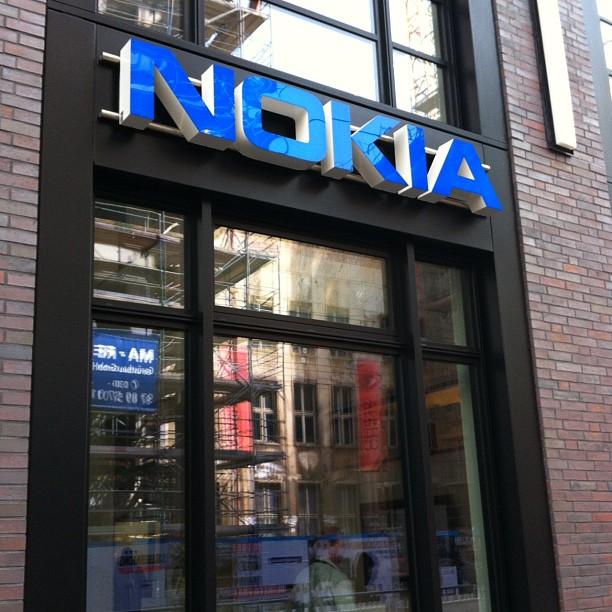As Nokia Looks To Sell HERE Maps, The Map Wars Are Underway
Last month, in response to the news that Uber had acquired LBS platform provider deCarta, Marc Prioleau penned an article asking is this the start of a mapping war?
A few days ago, Bloomberg announced news that Nokia is looking to sell off HERE, the maps business forged from the, sometimes unwilling, union of NAVTEQ and Nokia's Ovi Maps. Potential buyers for HERE include ... Uber.
This looks like either a skirmish before an all out map war offensive or this is the start of that mapping war.
But why would a mobile car booking application want to buy another mapping platform and mapping service? The answer is, to my mind, simple and to paraphrase Marc, (Uber) want to own their location assets. With deCarta, Uber now has the platform to do geospatial calculations, such as routing, without relying on a third party. But even with deCarta's platform, Uber are still missing something. Geospatial and mapping platforms need to be fed and fed regularly with data to keep them current. With Uber reportedly eyeing up HERE, the value in such an acquisition is less about HERE's mapping platform and much more about HERE's mapping data. Whether Uber knows about the cost of keeping that data current remains to be seen; maybe we'll see Uber (re)launching their own location platform as a way of trying to generate revenue to offset those upkeep costs.
This isn't the first time this has happened in the maps and location industry. In 2009, Google dropped TeleAtlas (now owned by TomTom) in favour of their own map data, gleaned from their Street View project. Although this was initially in the US only, Google has since expanded their own global map outside of the United States. As with Uber, Google sees the value in owning as much of the location platform, including the data, as they can.
Although buying your own location data provider doesn't come cheap it also isn't prohibitively expensive either. Consider that in 2007 Nokia acquired NAVTEQ for a reported $8.1 billion. In August of 2014, unnamed analysts valued HERE at $6 billion should Nokia look to sell of that part of the business. Now Bloomberg are citing a valuation for HERE at around $2.1 billion. Now consider that Uber is thought to have a war chest of just under $6 billion. Even if paying the asking price, Uber will be able to write a cheque for HERE with relative ease.
Of course, Uber may not end up owning HERE. There are other potential buyers with equally large war chests and that's before you look at private equity firms.
If this really is a full scale map war, where will it spread next? Accidental casualties will probably be Yahoo, Microsoft and Amazon. The former two web giants got out of the mapping business and outsourced their map platforms to HERE, which also powers the maps for Amazon's Kindle Fire range. MapQuest is also powered by HERE's data and together with Yahoo and Microsoft are probably looking for a plan B for their maps right now, if they're not already doing so.
Attention may fall next to TomTom, who acquired TeleAtlas in 2008 for just under €3 billion. Since the announcement in 2012 that TomTom will be providing the underlying data for Apple's mapping and location services, TomTom have remained quiet and if there has been any growth for the company or large deals, they've been struck in private and both parties are keeping their own counsel.
So while it looks likely that the days of an independent global mapping provider, albeit one with a focus on the automotive industries need for turn-by-turn navigation, are numbered, who will end up the winner of the map wars?
Will it be Google continuing to dominate the web and mobile mapping space? Will Uber or whoever acquires HERE or whoever finally acquires TomTom turn the mapping platforms inwards or will they keep them running for developers to use? Maybe the map wars will be the stimulus that OpenStreetMap finally needs to shrug off their licensing issues and to take its place as the sole global mapping provider.
Only time will tell, but I predict that these times are going to get a whole lot more interesting as the battles, skirmishes and melees of the map wars continue.
Disclaimer: I worked at Nokia Maps and subsequently HERE Maps between 2010 and 2013 and remain a Nokia shareholder; no insider secrets were divulged or harmed in the writing of this post.
Keep Calm and Make Maps via the Keep Calm-o-Matic.

